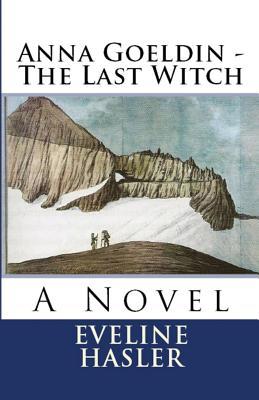The last witchcraft trial in German-speaking countries was held in 1782 in Eveline Hasler's home canton of Glarus in Switzerland. A servant woman, Anna Goeldin, was accused of having bewitched a child of the physician household in which she worked, making it crippled and spit pins. The accused confessed under torture, was sentenced by the city council and executed. Sources show that the trial provoked great controversy in Europe even at the time. The courts in Glarus were ridiculed and criticized by more enlightened cities in Switzerland and Germany. In her novel with its beautiful simple language, Hasler tells Anna Goeldin's story and trial. With the means of fiction, Hasler attempts to explain how a witchcraft trial could come to take place in the heart of Europe during the heyday of the Enlightenment. The novel was first published in 1982 and also draws parallels to women's fight for equal rights two hundred years later.
This novel is a bestseller in German-speaking countries, has been translated into several languages, and made into a feature film by Gertrud Pinkus. The translation by Mary Bryant has won an Arts and Humanities Initiative Award at the University of Iowa.
Eveline Hasler (born in 1933) was trained as a teacher of History and turned to writing children's books, fiction, and historical fiction. She is the recipient of many awards, among them the Switzerland Award for Juvenile Fiction (1978), Honors by the City of Zurich (1988), Schubart Award (1989), Droste Award (1994), and Justinus Kerner Award (1999).

The last witchcraft trial in German-speaking countries was held in 1782 in Eveline Hasler's home canton of Glarus in Switzerland. A servant woman, Anna Goeldin, was accused of having bewitched a child of the physician household in which she worked, making it crippled and spit pins. The accused confessed under torture, was sentenced by the city council and executed. Sources show that the trial provoked great controversy in Europe even at the time. The courts in Glarus were ridiculed and criticized by more enlightened cities in Switzerland and Germany. In her novel with its beautiful simple language, Hasler tells Anna Goeldin's story and trial. With the means of fiction, Hasler attempts to explain how a witchcraft trial could come to take place in the heart of Europe during the heyday of the Enlightenment. The novel was first published in 1982 and also draws parallels to women's fight for equal rights two hundred years later.
This novel is a bestseller in German-speaking countries, has been translated into several languages, and made into a feature film by Gertrud Pinkus. The translation by Mary Bryant has won an Arts and Humanities Initiative Award at the University of Iowa.
Eveline Hasler (born in 1933) was trained as a teacher of History and turned to writing children's books, fiction, and historical fiction. She is the recipient of many awards, among them the Switzerland Award for Juvenile Fiction (1978), Honors by the City of Zurich (1988), Schubart Award (1989), Droste Award (1994), and Justinus Kerner Award (1999).